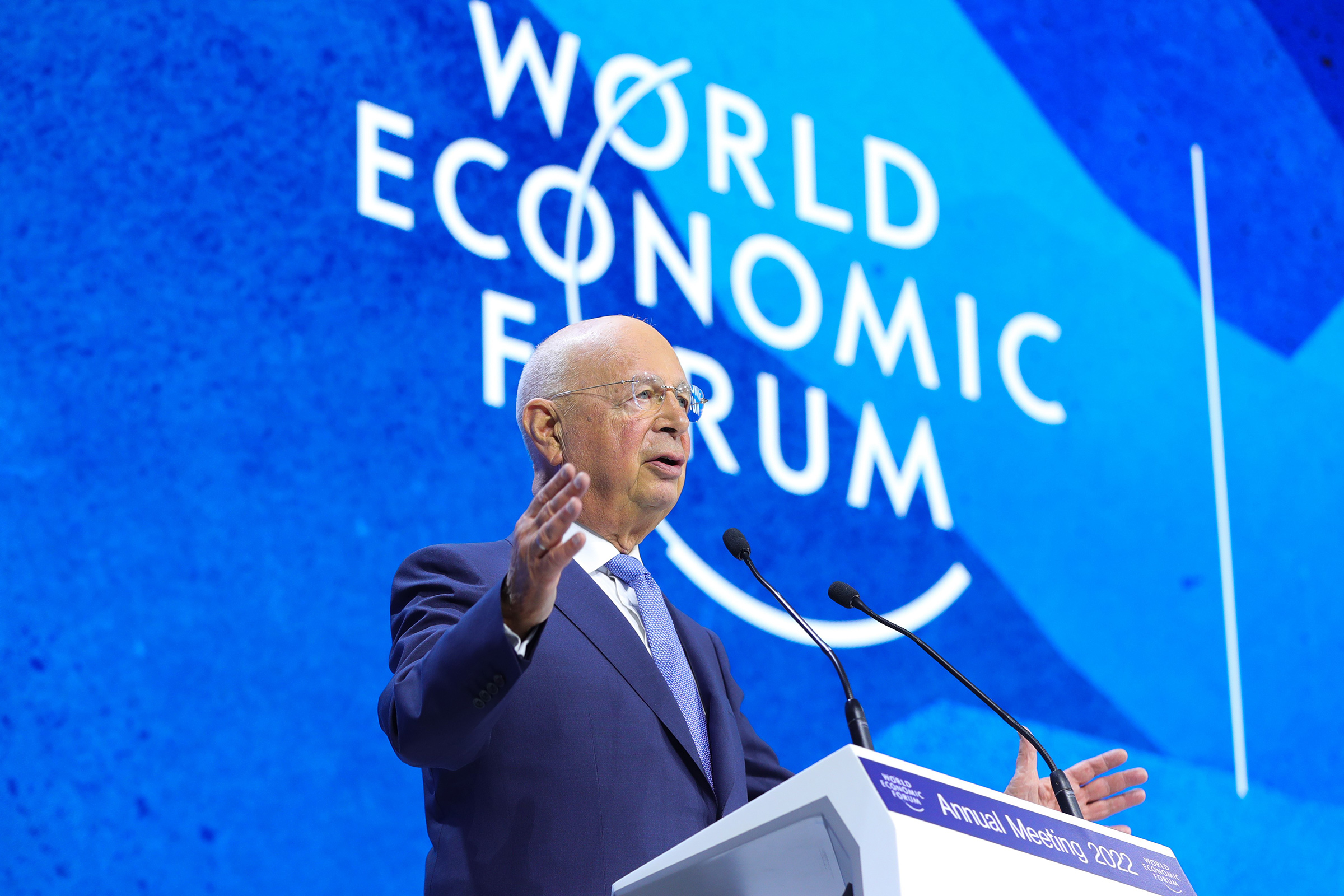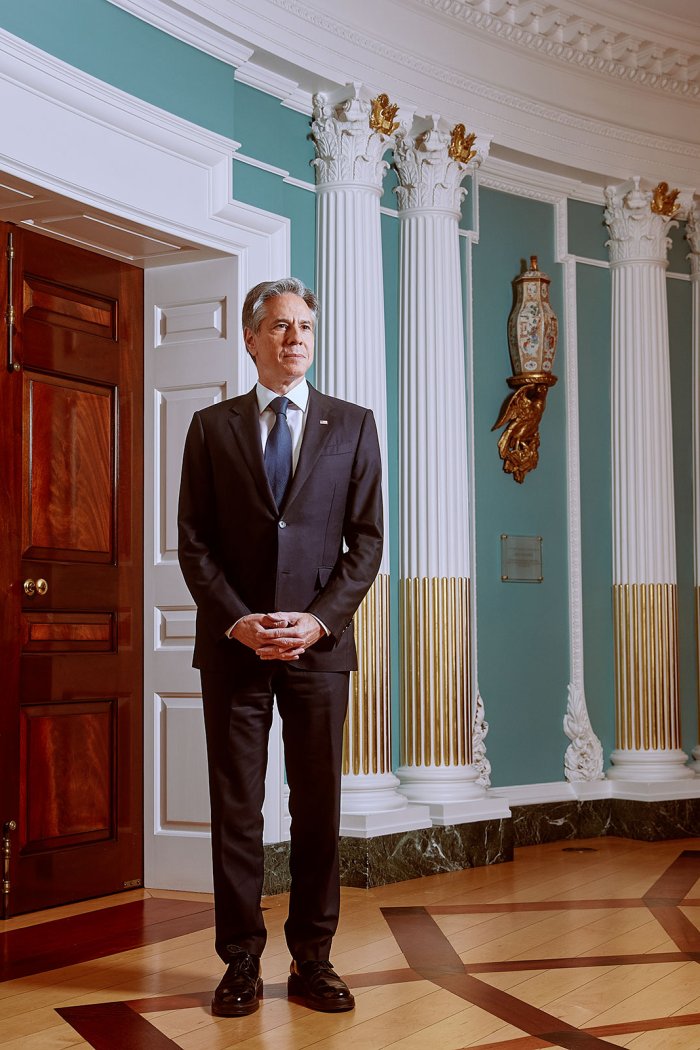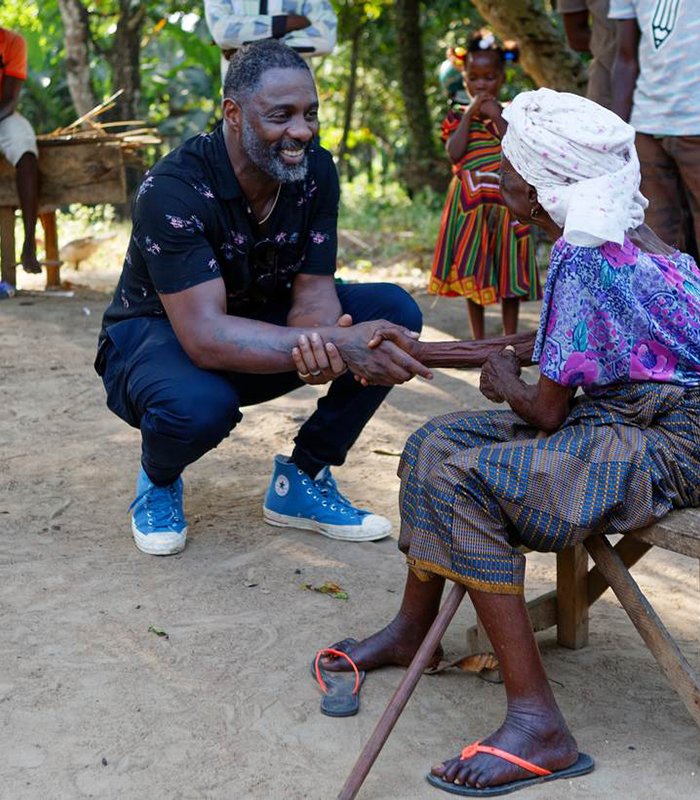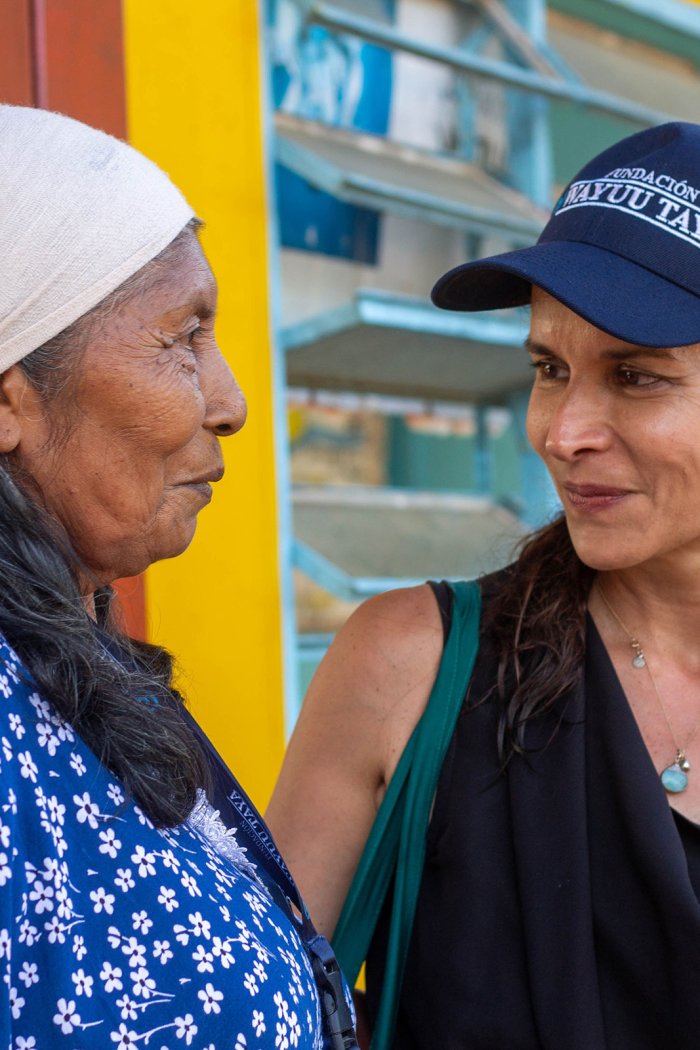TIME’s Editor-in-Chief Sam Jacobs sat down with Professor Klaus Schwab of the World Economic Forum ahead of its annual January meeting in Davos, Switzerland, to discuss the wars in Ukraine and the Middle East, the AI revolution, and the perils of polarization. This interview has been edited and condensed.
We’re at a moment of crisis now with the war in Europe and the war in the Middle East. From your perspective, how have those events shaped the current moment?
I’m involved in those two conflicts in a very emotional way. I grew up during wartime in Europe, and one of my earliest memories is sitting in a shelter and having my teddy bear in my arms and hearing bombs coming down. And I think this experience was the main driving factor for what I did in my life, which means to create platforms for reconciliation and for dialogue.
You’ve argued in the past that we’ve entered a multipower world. How is that dynamic shaping the main trends for 2024?
We cannot come back to the context which we had 10, 20, 30 years ago. Of course, there are two main poles, the U.S. and China coming up, but it’s not only the U.S. and China. It’s India, it’s still Europe to a certain extent. You have the new middle powers like Saudi Arabia, Turkey, Indonesia, playing a more important role. You have some tech powers like some of the Silicon Valley companies, which certainly exercise global power, and this all creates a very fluid system with competing values with competing objectives. We are living in a very unstable world. But we have to find new rules which prevent such an unstable world turning into a world of conflict.
How concerned are you about relations between the U.S. and China?
When there was the Cold War between Russia and the U.S., in the ’70s and ’80s, the trade volume between them was $1 billion a year. Now, trade between the U.S. and China is more or less $1 billion a day. Business is very much interested in maintaining cooperation. But on the other hand, I recognize that today, let’s face it, technology provides so much more power. Take quantum technology. If you’re leading in quantum technology, you can break any encryption. So it’s a race between the countries. So the question is who is really leading and mastering the fourth technological revolution. But in my opinion the fourth industrial revolution provides so many opportunities and solutions to so many problems, like CO2 capture. Instead of competing, they should work together to exploit that potential—in the interest of everybody.
What about Saudi Arabia? Do you have a perspective on how that country is emerging?
I think it’s the most powerful regional power, and in a region which has an enormous potential for conflict, as we’ve seen. The hope is that Saudi Arabia uses its power to stabilize the region.
You talk to leaders across the world and across businesses. Particularly from the CEO perspective, what are those conversations telling you about the state of the global economy? What’s your outlook for 2024?
We have to find a new economic model for growth. It seems that we have run out of the traditional recipes. If I look at the global crisis, for example, in 2007–2008, we had great coordination, we coordinated fiscal and monetary policies, and we were able to avoid the worst of the crisis. Today, countries have very much switched to supply-side economic policies, subsidies, tax breaks, sanctions, and so on. It’s much more difficult to coordinate those policies because they are much more anchored in national interests, and we have to find a new narrative. For me the new narrative is: How do we create a transition from the present economic-development cycle into an economic cycle which is green, which is digital, and which is intelligent? Intelligent because with artificial intelligence now we have to create, or will create, a completely different economy compared to what we have today. It’s a new world. And I see that as a positive. We’ve moved from an agricultural world to a manufacturing- or service-oriented world; now we move to an intelligent economy. I see many opportunities in this transition—but like any transition, it’s a challenge.
On that point, what are the lessons that have emerged from the last year’s focus on AI? What are the lessons that we’ll bring into 2024 on artificial intelligence, for individuals, businesses, and governments?
Artificial intelligence is a complete game changer for business models, but also for individual consumption patterns, for individual behavior. It has an impact on education, on health, and so on. So this will be a major issue in Davos, to look at artificial intelligence—and not just for governments, which now preoccupy the public discussion.
One of the trends that we’re looking at for next year is the significant number of elections; something like over 40% of the world’s GDP will be voting in 2024. How does that affect the possibilities for change?
I’m really concerned by one of the underlying factors. We all speak about polarized societies, and we are afraid that in the forthcoming elections they will be manipulated, particularly now that we see the additional capability of artificial intelligence. If we look at the origin of this polarization, I think it’s a fear of the future. People are afraid. The world has become too complex. Too uncertain. Look at technology, artificial intelligence—who understands really what it means, what the impact is? It’s creating additional uncertainty. And if you go back, for example, to the Brexit vote, the big slogan of the Brexiteers was, let’s take control back. People feel they have lost control over their lives. I think this is the key factor for the polarization. When you feel you have lost that, you believe people or ideologies which, on the surface at least, provide you with more certainty.
There was a lot of conversation coming out of COVID-19 about our need to create a more just and sustainable world. How would you grade the world’s performance?
The danger is that we see the whole transformation into a greener world as mainly about the sacrifice we have to make. I think we have to change the metaphor to see it as an opportunity—because if you go through the energy-transfer transition, you will have energy available in a more affordable, in a more secure, and in a more sustainable way. We all know we have one project, in some form: to look at climate change and environmental pollution. We know that environmental pollution can cost you up to five years in life expectancy. The discussion is much too loaded by this idea that this is something that is painful. I would see it as an investment into a better future for humankind. The narrative has to be changed.
Read More: A Look at TIME’s Century of Climate Change Coverage
Speaking of narratives, one of the criticisms of the forum is that it’s a respite for the elite. How do you think about, in your work, creating a more inclusive World Economic Forum?
First, I would make a differentiation between “elites” and “decision-makers.” We don’t consider ourselves an organization of elites; we consider ourselves an organization that brings together decisionmakers in politics, business, and civil society. We also have what the public usually doesn’t see: we have the young generation very much involved. Then there is another misperception. Davos is not a decision-making body. We bring people together for dialogue and cooperation, but at the end it’s every business leader or every politician who, based maybe on better insight provided through the discussion and interaction in Davos, makes a decision.
What would you say is the state of stakeholder capitalism today?
I think the essential point is that governments alone—or business alone or civil society alone—cannot solve civic issues. A company is not only responsible toward the shareholders or owners, but also has a certain responsibility toward society, toward nature. We all are stakeholders of our global common future. We have to work together.
- Cybersecurity Experts Are Sounding the Alarm on DOGE
- Meet the 2025 Women of the Year
- The Harsh Truth About Disability Inclusion
- Why Do More Young Adults Have Cancer?
- Colman Domingo Leads With Radical Love
- How to Get Better at Doing Things Alone
- Michelle Zauner Stares Down the Darkness





